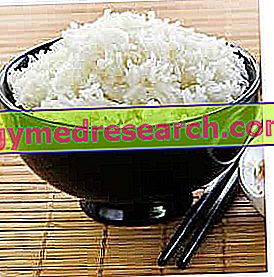Generality
Reflux cough is one of several symptoms that can occur in the presence of gastroesophageal reflux disease .

Extremely annoying, reflux cough is difficult to recognize, particularly if it presents itself as the only manifestation. Since it is caused by a particular underlying disease, reflux cough does not respond to the usual symptomatic treatments usually undertaken to calm the cough. This characteristic should trigger the first alarm bell in the patient who, in such a situation, should immediately contact his doctor.
In fact, reflux cough and the illness that causes it must not be underestimated and require specific treatments that must be prescribed by the doctor.
Brief Review: Gastroesophageal Reflux
Gastroesophageal reflux consists of the ascent of gastric contents into the esophagus. The phenomenon is, within certain limits, physiological. When the extent of gastresophageal reflux becomes too pronounced or frequent, it takes the form of a real disorder. The discomfort can be acute or chronic. Excessive and chronic gastroesophageal reflux, negatively affecting the integrity of the esophageal mucosa, thus evolves into gastroesophageal reflux disease .
The cause of the rise in the acid content of the stomach is to be found above all in a malfunction of the cardia that, in turn, can be caused by multiple risk factors (cigarette smoke, obesity, asthma, stress, etc.).
The reflux cough occurs especially when the ascent of the acid contents of the stomach occurs in a chronic form, therefore, in the presence of a real gastroesophageal reflux disease.
What is that?
What is Reflux Cough and why does it manifest itself?
Reflux cough is a dry and persistent cough that struggles to pass and resists common treatments with antitussive drugs. Sometimes, following certain pharmacological treatments it could even get worse.
However, reflux cough is a defense mechanism that is triggered by the body following the rise of acidic fluids contained in the stomach. More in detail, there are two theories formulated to explain why the organism responds to the rise of gastric contents with reflux cough:
- Reflux theory : according to this theory, when gastric fluids flow back up the esophagus, they go through it completely, until they reach the upper esophageal sphincter . Once this sphincter is reached, a sort of micro-aspiration can occur of tiny droplets of acidic fluids which, ending up in the airways, are recognized as foreign bodies, directly activating the defensive cough reflex.
- Reflex theory : according to this theory, the rise of acidic fluids through the esophagus can cause an esophagus-bronchial reflex that leads to the appearance of reflux cough.
Both of these theories are considered valid.
Furthermore, acidic compounds can reach and affect the trachea, pharynx and vocal cords, also irritating the throat and further encouraging the appearance of coughing.
Features
What are the Characteristics of Reflux Cough?
As mentioned, reflux cough appears as a persistent dry cough. When it manifests itself as the only symptom, very often it is difficult to classify it as a reflux cough and it can be wrongly traced back to other diseases.
However, reflux cough tends to occur at particular times of the day and in certain situations. In detail:
- It occurs above all after a meal (even more so if it is rich and abundant) and / or during the night;
- It tends to improve in the morning hours;
- It occurs especially when you are in a lying position (this position, in fact, favors the ascent of the acid content of the stomach towards the esophagus);
- It also occurs when there do not seem to be common causes capable of giving rise to this type of disorder (for example, colds, taking medicines for which the cough is a known side effect, diseases of the lungs or airways, etc.).
Associated symptoms
What other symptoms can occur in association with reflux cough?
Reflux cough can manifest itself as a single symptom, or in association with more or less severe and more or less specific symptoms. In fact, sometimes the cough can be associated with a simple sore throat, which is also resistant to classic anti-inflammatory treatments; while in other cases reflux cough is accompanied by symptoms such as:
- Retrosternal burning (heartburn);
- Acid regurgitation;
- Dysphagia;
- Halitosis;
- Hoarseness and dysphonia (caused by the action of acid stomach fluids on the vocal cords);
- Shortness of breath;
- Esophageal spasm which causes retrosternal pain very similar to that induced by angina pectoris.
Did you know that ...
In reality, cough is considered an atypical symptom of gastroesophageal reflux and does not occur in all patients, although, in some cases, it may be the first and only symptom to appear. Typical symptoms of this disorder are, however, heartburn and acid regurgitation.
Nevertheless, researchers from the University of North Carolina in the United States have estimated that as many as 25% of chronic persistent cough cases are caused by gastroesophageal reflux disease. Therefore, according to this estimate, the chronic and persistent cough that afflicts 25% of the population examined is, in reality, a reflux cough.
Diagnosis
How is Reflux Cough Diagnosed?
The diagnosis of reflux cough - therefore, of the gastroesophageal reflux disease that caused it - is not as simple as one might think, or at least, not always.
In fact, since the reflux cough can manifest itself on its own, or possibly in association with sore throat, it is often difficult to identify the triggering cause only on the basis of anamnestic data. In particular, this diagnosis is rather difficult during the autumn and winter months, when symptoms such as cough and sore throat can be traced to banal colds.
However, reflux cough resists treatment with antitussive drugs and this fact should make the doctor suspicious, prompting him to carry out all investigations in order to identify the real cause of the symptom in question. On the other hand, asthma and retronasal drip (posterior rhinorrhea) can also lead to the appearance of a dry cough. The arduous task of the doctor, therefore, consists in being able to determine exactly the pathology that triggered the symptom. Only in this way, in fact, will it be possible to undertake the most suitable therapy. To do this, the doctor can take advantage of various diagnostic tests, such as, for example, gastroscopy or 24-hour esophageal pH-metry .
When, on the other hand, reflux cough is associated with other typical symptoms of gastroesophageal reflux, the diagnosis could be much easier.
Treatments and Treatments
How to Treat Reflux Cough?
Since reflux cough is a symptom, its treatment consists in treating the pathology that caused it, therefore, gastroesophageal reflux disease. In fact, the symptomatic treatment with antitussive drugs normally indicated for dry cough, generally, is completely ineffective in case of reflux cough.
However, among the drugs most used to combat gastroesophageal reflux disease, we find:
- Proton pump inhibitors (IPP): proton pump inhibitors are able to reduce acid secretion from the stomach, inhibiting the activity of the proton pump located on the parietal cells of the gastric mucosa. Omeprazole, esomeprazole, pantoprazole and lansoprazole belong to this group.
- H2 receptor antagonists : these drugs also act by inhibiting the acid secretion of the stomach and do so by hindering the activity of receptors for type 2 histamine. In fact, once activated by binding to histamine, H2 receptors stimulate release of hydrochloric acid from gastric parietal cells. Thanks to these drugs, therefore, the link with histamine does not occur, consequently, acid secretion is blocked. Examples of active ingredients belonging to this group are cimetidine and ranitidine.
- Antacids : these are compounds capable of neutralizing the excessive acidic environment of the stomach. Their duration of action, however, is very short (a few hours) and does not affect the acid secretion of the stomach. Typical examples of antacid drugs are sodium bicarbonate, calcium carbonate, magnesium hydroxide and aluminum hydroxide.
- Prokinetics : prokinetic drugs are not able to act on the acid secretion of the stomach, but facilitate their emptying, reducing the time the food stays in the stomach. They are not used in monotherapy, but in association with the aforementioned drugs which act on the secretion of acid by the stomach.
Prevention
Can Reflux Cough Prevent?
Fortunately, reflux cough can be prevented. Given the cause of this symptom, the preventive strategies to be put into practice are the same as those used to prevent gastroesophageal reflux. Therefore, some useful tips to avoid the onset of the disorder will be reported below.
- Adopt a healthy and balanced diet.
- Avoid alcohol, spicy foods, too spicy foods and other foods or drinks that can promote the onset of gastroesophageal reflux and, consequently, the appearance of reflux cough.
- Eat slowly and avoid lying down for at least two or three hours after lunch or dinner.
- Avoid fasting for long periods of time.
- In the presence of obesity or overweight, try to reduce body weight (in fact, these disorders represent some of the risk factors that favor the development of gastroesophageal reflux disease, potentially also favoring the appearance of reflux cough).
- Maintain a good level of physical activity.
- Quitting smoking: it is important not only to reduce the risk of the onset of reflux cough, but also for the well-being of the whole body.
- Avoid stress as much as possible. In fact, the disease in question can worsen in situations of high stress, thus favoring the appearance (or re-appearance) of reflux cough.



